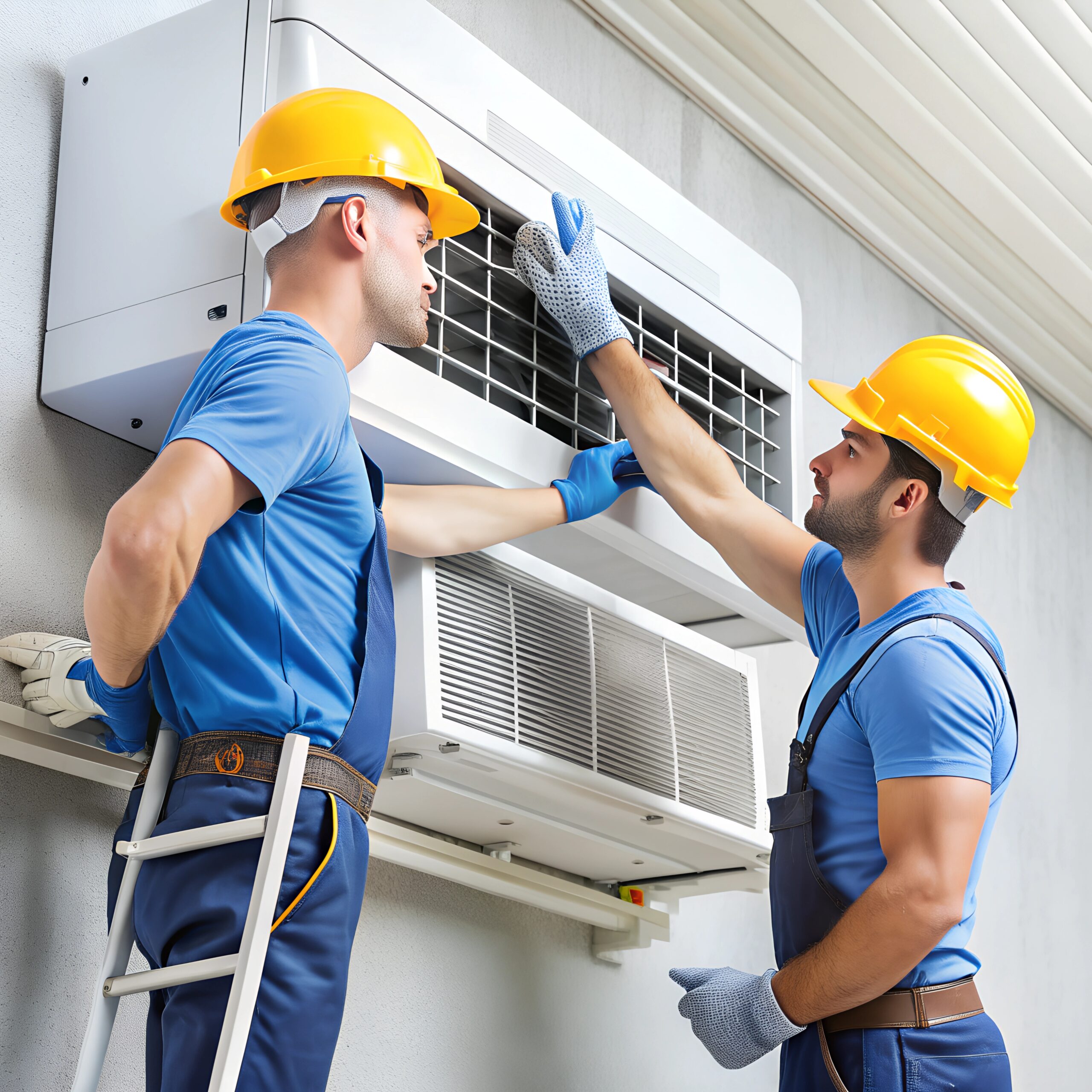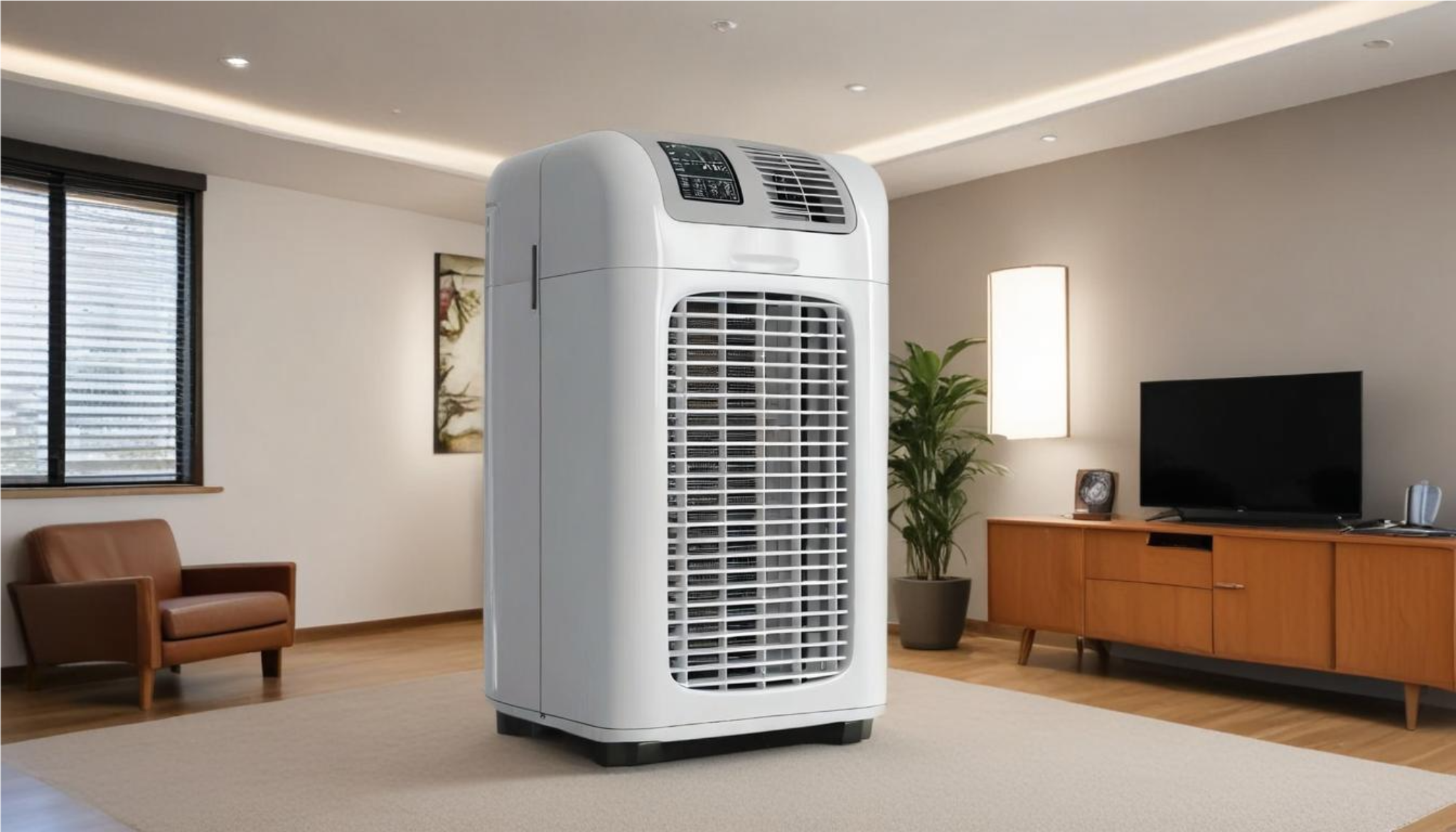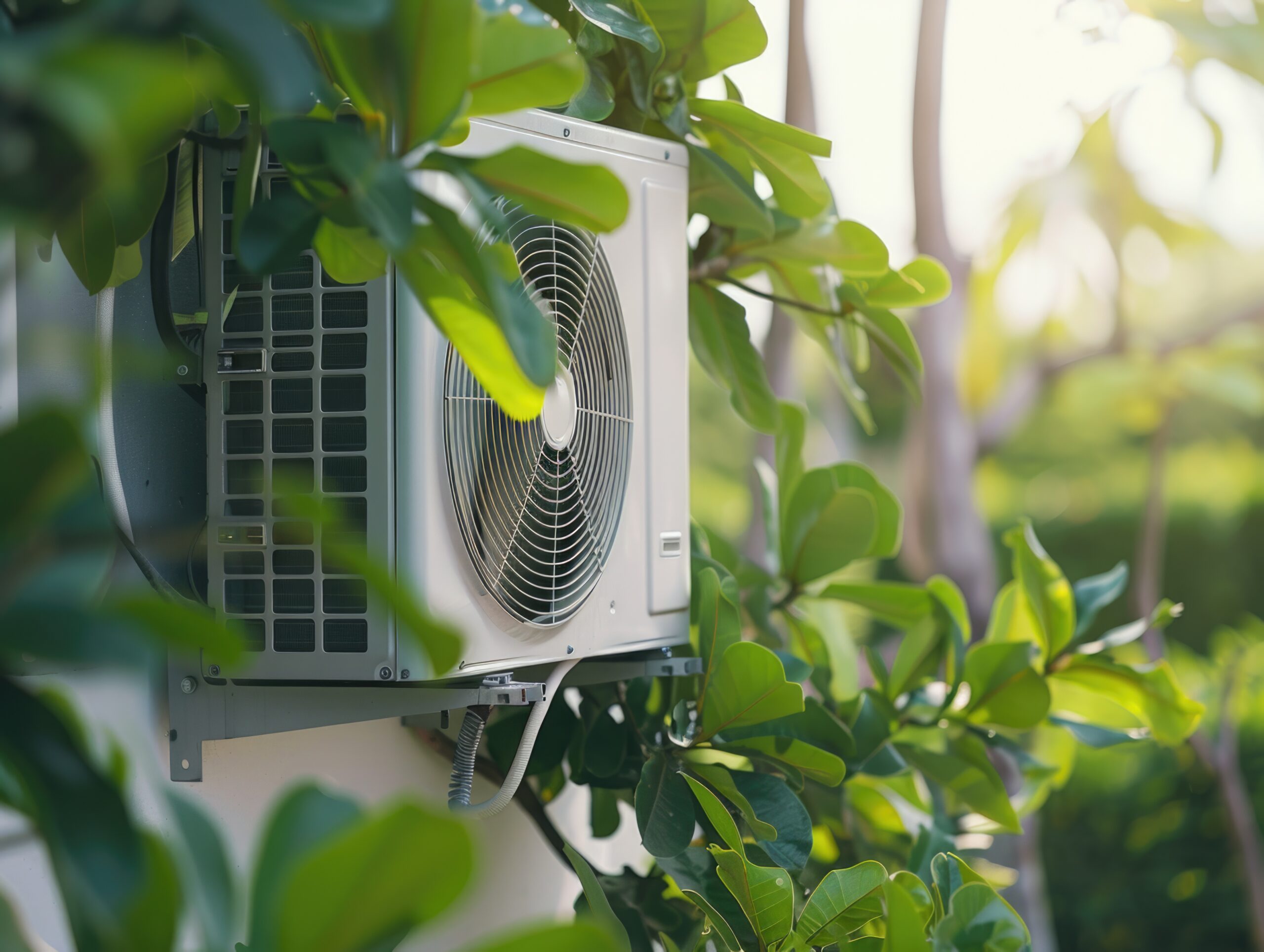Feeling the heat because your air conditioner’s not up to scratch? You’re not alone. A common issue that can leave you sweltering is a frozen air conditioner. But how can you tell if that’s what’s causing your discomfort?
Understanding a Frozen Air Conditioner
Now that you’re aware of how discomforting a frozen air conditioner can be, let’s investigate into understanding the basics of identifying if your air conditioner is indeed frozen. Keep a keen eye out for these significant signs.
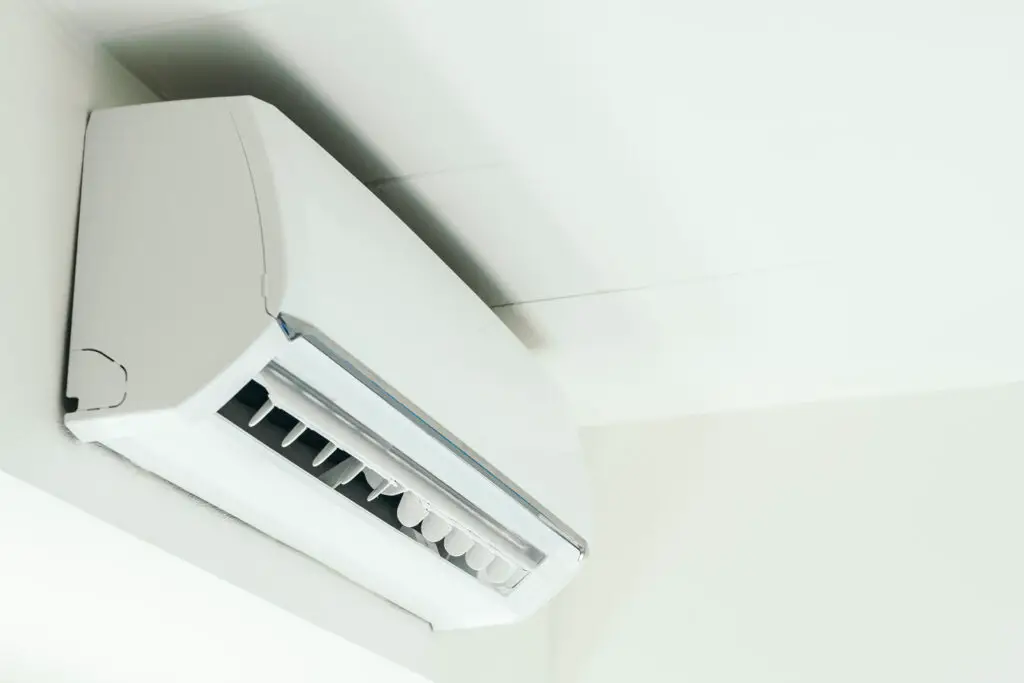
Signs Your Air Conditioner Is Frozen
Identifying a frozen air conditioner requires a discerning eye. You’d start by physically examining your air con. One of the critical signs lurks in the form of ice-build up. A significant amount of frost on the air conditioner’s outdoor unit might grab your attention. This symptom, albeit an obvious one, definitely confirms that the unit’s frozen.
Specially note that under normal working conditions, your air conditioner may have some condensation. But, when excessive frost builds up even when it’s sweltering outside, it’s plausible that your air conditioner is frozen.
You’d surely question the efficiency of your air conditioner if it’s blowing out warm air instead of cool. Another sign sniffs in the air vents. Cold temperatures, coupled with an inability to cool the room, hints towards a freezing issue. Besides, a sudden hike in your electricity bills can be another indication. The extra effort put in by your air conditioner to cool your space, due to the freezing, can spike up its power usage, so inflating your bills.
Common Causes of Freezing
Various factors contribute to the freezing of an air conditioner. One such prominent cause is a lack of sufficient airflow. When dust, dirt, and debris obstruct your air conditioner’s air filters, it hampers the airflow, causing the cold air to freeze within the conditioner.
Refrigerant leakages are the next most common culprits. These can cause lower pressure in the air conditioner, leading to freezing. Low refrigerant levels may also instigate freezing. It’s necessary to maintain the correct refrigerant levels; otherwise, the conditioner struggles to remove heat and causes freezing.
Finally, even the smallest mechanical issues, like a malfunctioning fan, could lead to freezing. Such issues restrict the circulation of air, validating the freeze.
Armed with these indicators, you’re now well equipped to diagnose if your air conditioner is frozen. Do remember resolving the freezing issue does require professional help to prevent further complications. By observing these signs and causes, you’ll be on your way to reinstating the full functionality of your air conditioner.
Diagnosing a Frozen Air Conditioner
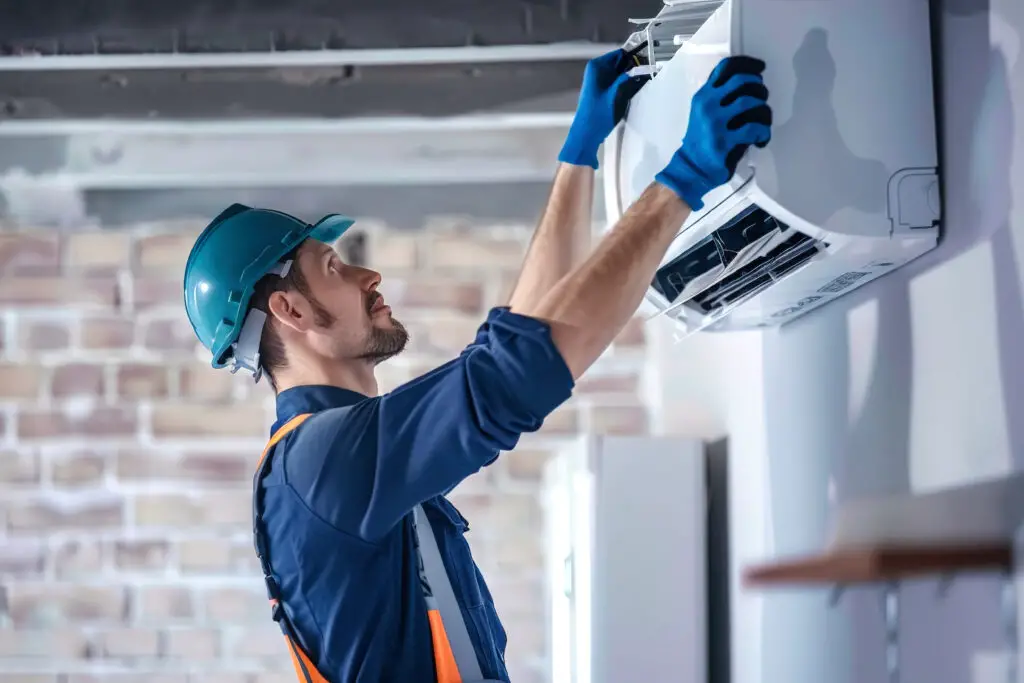
When it comes to diagnosing a frozen air conditioner, there are a couple of steps that can guide your inspection. But, in some cases, seeking professional assistance becomes an indispensable step. Your trusty air conditioning unit could be singing the frozen tune without you even realising it, leading to increased electricity costs and a home that feels more like a desert than a cool haven.
Inspection Steps
- Check for Frost or Ice build-up: The most straightforward sign of a frozen air conditioner is visible frost and ice on the coils. If you notice this occurrence, it’s a clear indication that your unit has literally frozen over.
- Sense the Air Temperature: If your unit is blowing warm air instead of cold, chances are it’s frozen. Your air conditioner’s job is to cool your home, and when it’s operating correctly, it does just that.
- Monitor the Indoor Humidity Levels: Air conditioning units not only cool but also dehumidify the air. If your home’s humidity levels are off the chart, it’s an indication of a frozen unit.
- Consider your Electricity Bills: If your utility costs are higher than usual, it might be due to an overworked frozen air conditioner.
When to Call a Professional
Spotting these signs can be simple enough, but correctly diagnosing the root cause of your air conditioner freeze and fixing it might be another story. Refrigerant leaks, poor airflow, and mechanical issues are some of the technical problems that require a professional touch. So if you spot any frost, feel the air temperature rising, or observe inconsistent humidity levels, don’t hesitate to call a professional. While some DIY interventions might seem appealing, it’s best to leave the technical work to the experts. They have the means and know-how to safely restore your unit to its full working condition. It’s not worth risking further damage or potential injury whilst trying to defrost your frozen air conditioner.
Preventing Future Freezing
Moving through the discomfort of a frozen air conditioner and noticing its signs, perhaps you’re wondering how to prevent the same issues in the future. Stop this chilly problem from occurring again with preventive measures such as routine maintenance and appropriate temperature settings.
Routine Maintenance Tips
Regular upkeep of your air conditioner stands as a crucial strategy to avert future system freezing. It’s a better approach to check components for minor issues before they escalate into a major problem.
- Clean or Replace Filters Regularly: Dirty filters block the airflow, causing the evaporator coil to freeze. Aim for a filter cleanup or replacement every one to two months, depending on use and the manufacturer’s instructions.
- Ensure Adequate Airflow: Make sure nothing blocks your vents, be it furniture, blinds or toys. A smooth airflow prevents the system from working too hard and so freezing.
- Scheduled Professional Checkups: Even though your best efforts, there remain aspects of maintenance out of your league. Professionals possess the competence to detect minute problems and resolve them on time. Aim for a professional check-up at least once a year, preferably before the cooling season begins.
Recommended Temperature Settings
Overcooling your space can lead to frozen units. Even though it might feel pleasant to turn your air conditioner to the minimum during a sweltering summer, it’s not the best practice for your system. Experts recommend setting your air conditioner at a temperature between 22-24°C. Slight variations might exist due to personal comfort, but remaining within this range helps prevent overworking and subsequent freezing of your unit.
Your preventive measures, combining both regular maintenance and smart temperature settings, can effectively dodge the inconvenience of a frozen air conditioner. Rather than reactive interventions, proactive care awards you comfort, efficiency, and longevity of your system. Remember, it’s not just about spotting ice or high bills but stopping these indicators from ever appearing.
Conclusion
Remember, a frozen air conditioner doesn’t just lead to discomfort, but can also cause increased electricity bills. It’s crucial that you don’t overlook signs like ice build-up or warm air blowing. Don’t hesitate to seek professional help to fix the issue, as this isn’t a DIY job. Looking ahead, prevention is key. Regular maintenance, such as cleaning or replacing filters and ensuring adequate airflow, can help you avoid future freezing. Also, don’t forget to schedule professional check-ups. Be smart with your temperature settings too, to prevent overcooling. By being proactive, you’ll promote not only comfort but also efficiency and longevity in your air conditioning system. So, keep these tips in mind and enjoy a cool, hassle-free summer.
